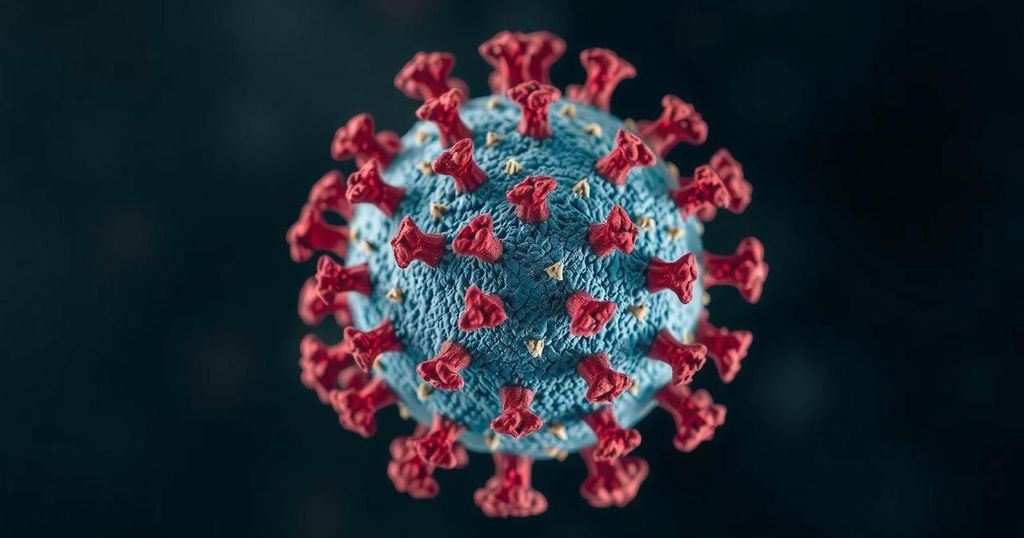Understanding Mpox: Symptoms, Transmission, and Global Impact

Mpox, formerly known as monkeypox, presents critical public health risks, particularly in Africa, where outbreaks have surged. Symptoms range from fever to severe rashes, with a notable increase in cases among vulnerable populations such as children. Recent data indicates over 14,500 infections in 2024 alone, prompting WHO’s emergency response. Vaccination efforts are hindered by funding issues, whereby global cooperation is essential to manage the health crisis effectively.
Mpox, formerly known as monkeypox, is a viral disease that has recently been declared a public health emergency by the World Health Organization (WHO) due to its outbreaks primarily in Africa. The disease, transmitted through close contact, results in symptoms such as fever, headaches, and a characteristic rash. While historically less harmful than smallpox, it poses serious health risks, particularly to children and those with weakened immune systems. Symptoms generally appear within 14 to 21 days of infection and can result in severe complications and even death. The current outbreaks are predominantly occurring in the Democratic Republic of Congo but have also spread to neighboring countries including Burundi, Rwanda, Uganda, and Kenya. Two main clades exist—Clade 1, which presents a more serious threat, and Clade 2, which has historically caused milder cases. The WHO has emphasized the need for rapid response to curb the virus’s spread and protect vulnerable populations, particularly children. Vaccination efforts have been hampered by insufficient funding and limited availability, although various experts are advocating for emergency use of existing vaccines.
Preventative recommendations urge individuals to avoid close contact with infected persons, maintain hygiene through proper handwashing, and utilize protective measures such as condoms during recovery from mpox. Public awareness and coordinated medical responses are crucial for managing this emerging health crisis.
Mpox is an infectious disease caused by a virus belonging to the orthopoxvirus family, which includes smallpox. Historically, it has transmitted from animals to humans, particularly in remote regions of West and Central Africa. Yet, in recent years, human-to-human transmission has become more prevalent. Symptoms include fever, headaches, back pain, and a rash which progresses in severity. The current escalation of cases in the Democratic Republic of Congo and surrounding regions highlights an urgent public health challenge. Vulnerability factors significantly contribute to infection rates, especially in children, underlining the necessity of targeted health interventions.
In conclusion, the recent outbreaks of mpox pose a significant public health challenge, particularly in Africa, with increasing infection rates and severe disease manifestations predominating among young children and those with compromised health. Understanding transmission routes and implementing protective measures are essential components of the response strategy. The lack of sufficient vaccination resources further complicates the control of the virus. Global cooperation and timely interventions are paramount to mitigate the spread of mpox and safeguard public health.
Original Source: www.bbc.com







